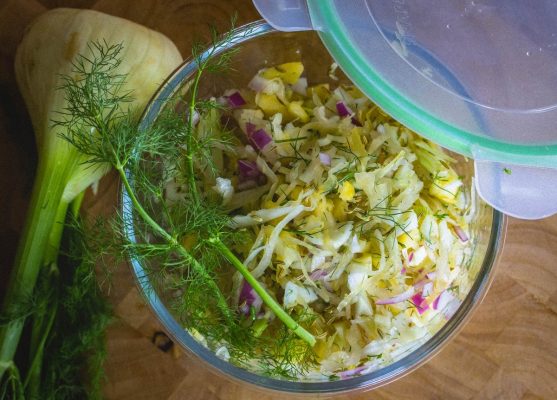Good Food = Good Gut
Don’t think you need to sacrifice delicious food for your health. Conscious eating aligns with optimal gut health. Eating quality, local foods, and sourcing the freshest ingredients that are nutrient dense not only tastes great, but is great for you. So, next time you are wandering through the local farmer’s market or dining at your favorite farm-to-table restaurant, remember to look for these key ingredients to ensure you are maintaining and supporting a thriving microbiome!
How a Modern Eater Supports Their Gut Health
As a Modern Eater, you likely enjoy indulging in tasty cuisine. You have an admiration for food that has been carefully crafted and mindfully sourced from local farms and purveyors. You may even recognize skillfully plated entrees as artwork, appreciating the pungent flavors and unique beauty in nutrient-dense and nourishing ingredients.
We’ve established what you already know: you love food. However, when it comes to gut health, what should you eat to stay healthy?
The Basics
Let’s start by briefly identifying the fundamentals and importance of gut health.
Nearly the entire immune system is located in the gut, which makes gut health a priority when thinking about optimal health. A healthy gut is determined by the collection of bacteria that resides in the gut, or microbiome, as well as the fungi or mycobiome. Optimal gut health is achieved by maintaining a healthy balance of bacteria and fungi, as well as a healed gut lining.
Microbiome & Mycobiome
The microbiome, or bacteria living in the gut, and the diverse assortment of fungi, or mycobiome, are responsible for nearly your entire immune system[1]. An overgrowth of bad bacteria can cause digestive issues and complications. In fact, studies show that many digestive disorders can be caused by a lack of diversity of bacteria and fungi in the gut[2].
Gut Lining
The gut lining is comprised of cells that are bound together by tight junctions or connectors[3]. When these junctions are impaired, it causes the gut to become permeable, also referred to as “leaky gut”. This allows undigested foods and toxins to seep into the bloodstream. Leaky gut can ultimately lead to inflammation and other more serious health issues.
Nourishing Foods
Now that we have a better understanding of the basics of gut health, let’s review the foods you can enjoy that help support a healthy microbiome.
Ferments
One of the best ways to help balance the gut flora is by consuming ferments, which are full of probiotics (the beneficial bacteria that reside in the gut).
Foods like sauerkraut, fermented cabbage, and kimchi (a Korean version of sauerkraut) are excellent sources of probiotics. Homemade yogurt is also an excellent source of probiotics, as it is cultured for a longer period of time than store bought versions, and thus yields a higher content of beneficial bacteria.
To ensure you are getting a healthy portion of ferments into your daily diet, check out a few of my kraut slaw recipes listed below. I love making these and having them on hand throughout the week to throw into fish tacos, served on top of burgers, or mixed into salads. They are light and refreshing, perfect for the warmer months ahead!
Pineapple Fennel Sauerkraut Slaw

pineapple fennel kraut slaw
Fiber
Fiber is essential for gut health, as it is an excellent source of prebiotics – what probiotics feed on in the gut. In fact, studies show that diets high in fiber displayed an improved profile of bacteria, which has been linked to weight loss[4], as well as a more diverse microbiome population6. Some of the best high-fiber foods to consume are leafy greens. They are good sources of B vitamins and vitamin C, which both aid in preventing an overgrowth of the fungus Candida, most commonly associated with yeast[5]. A few of the healthiest leafy greens are kale, spinach, Swiss chard, arugula, and dandelion greens, which are excellent in salads but also great blended into smoothies!
Bone Broth
Bone broth has been around for many years, but has slowly disappeared from the Western diet. Also referred to as stock, bone broth has a number of health benefits that help support gut health. For instance, it is full of nutrients like collagen and L.Glutamine that help heal the gut lining and reduce inflammation[6]. Plus, it contains numerous vitamins and minerals that are essential for proper hydration[7].

Delicious bone broth!
You can use broth in a variety of recipes, such as my Coconut Curry or Rutabaga Leek Soup, or even in oatmeal sweetened with honey for a delicious sweet-and-savory combination.

Coconut curry soup!
Bone broth is incredibly simple to make. Check out my blog post for a quick 4-step process, as well as my videos on how to source your bones for broth and how to make bone broth.
[1] https://www.ncbi.nlm.nih.gov/pmc/articles/PMC2515351/
[2] https://www.ncbi.nlm.nih.gov/pmc/articles/PMC4315779/
[3] http://jn.nutrition.org/content/141/5/769.full
[4] https://www.futurity.org/fiber-gut-bacteria-type-2-diabetes-1699832/
[5] https://www.thecandidadiet.com/vitamin-c/
[6] https://www.ncbi.nlm.nih.gov/pmc/articles/PMC4303825/
[7] https://www.louisehay.com/18-amazing-health-benefits-bone-broth/




Leave a Reply